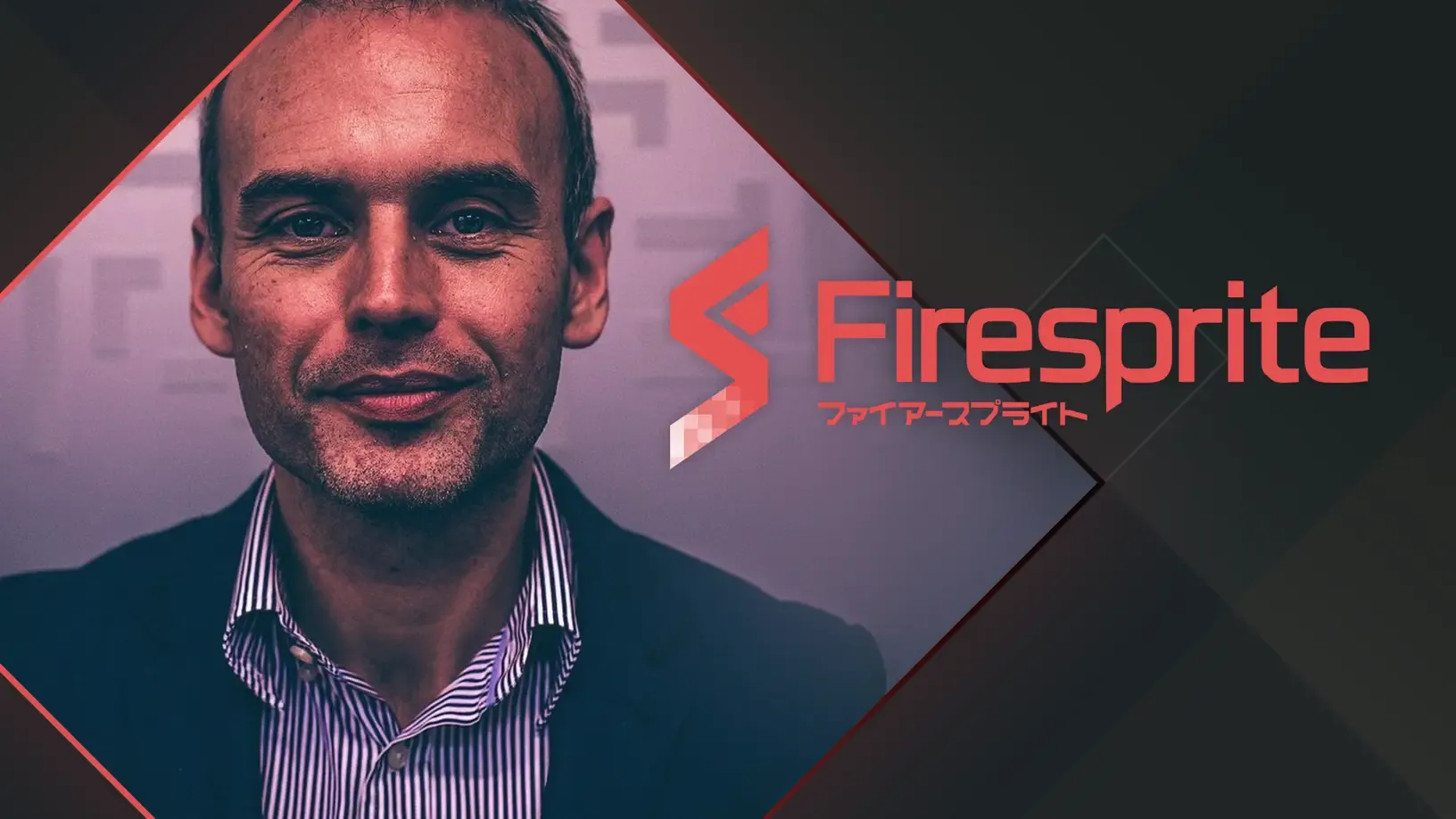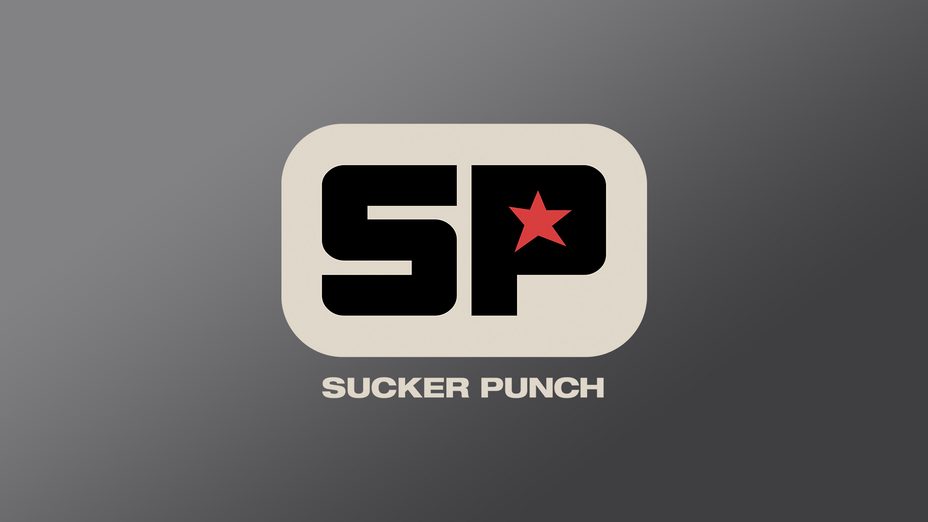Studio Spotlight – Firesprite

The vibrant history of Sony Interactive Entertainment (SIE) is reflected in the personal histories of its employees. Graeme Ankers is the Managing Director at Firesprite, which just celebrated its ten-year anniversary, and his decades-long career in video games is deeply connected to the history of the medium itself. “When I first got a job in the industry in 1997, it was something that I didn’t even really realize existed as a career,” Ankers says now with a chuckle. “As soon as I got involved in games and recognized that you can put the player right in the heart of the storytelling experience, [the industry] just had me hook, line and sinker. I never really wanted to do anything else after that.”
The Northwest Connection
After attending university to study the arts, Ankers soon found himself at the forefront of a burgeoning new wave of UK-based video game development. “The North West—which is a broad section of England, covering two major cities in Manchester and Liverpool—always seemed to me like the birthplace of the UK games industry,” he explains. “There were two major companies in Psygnosis and Ocean, and that was where myself and the other four founders of Firesprite first started.”
Psygnosis was one of the first global publishers in the region at that time, and cutting his teeth on classic titles like WipEout gave Ankers valuable experience—and lifelong friendships. “The residual talent was always there in the Northwest, and we had such a strong heritage of creating these incredible experiences that millions of people around the world adopted and remember fondly. In a way, helping to form Firesprite was my attempt to try and recognize that, and to bring that sort of momentum back to the area.”
Along with a group of accomplished professionals in Art Director Lee Carus, Technical Director Chris Roberts, Game Director Stuart Tilley, and Programming Director Stuart Lovegrove, Ankers founded Firesprite in 2012.
A Decade of Success
From the start, Firesprite has prized innovation and cooperation. The first title they worked on, THE PLAYROOM, was an augmented-reality social game created in close collaboration with lead studio Team ASOBI, and was a launch title for the PlayStation 4. The Firesprite team took that willingness to go outside their comfort zone into their next release, 2014’s Run Sackboy! Run!, their first mobile title and a spin-off of the acclaimed LittleBigPlanet series.
“That was a real lesson for us, in terms of how to understand the rhythm of a completely different game on a completely different console,” Ankers acknowledges. “It was the first mobile game where you could unlock content that you could then redeem on your PlayStation.” The studio had to learn how to adapt to new technology, an experience which would become a recurring theme for Firesprite, as their next several releases utilized the PSVR platform, culminating in 2018’s The Persistence.
“With The Persistence, we were really passionate about trying something in that survival horror genre,” Ankers says. “We designed a kind of asymmetric gameplay between tablets and mobile phones, so friends could play alongside the VR player in the same room, to help or hinder them. A lot of survival horror games—particularly on VR—were playing quite naturally to the isolation of that platform, but we bought something new… which led into a fuller experience that did something different in that genre.”
He adds: “Thinking of all of our releases, you can always see that combination of new mechanics that come together to move the experience forward in a unique way. That’s one of the things I’m most proud of: how we’ve applied that to all of our games, and how all of our current projects follow the same philosophy.”
Heeding the Call
Firesprite’s current project is one of their most exciting titles yet. Horizon Call of the Mountain will add a new chapter in the Horizon universe, co-developed with Guerrilla Games and set to debut on the PSVR2 in February 2023.
Ankers acknowledges both the thrill and the responsibility of crafting a story in such a beloved universe. “The level of trust from Guerrilla Games, even when we first started on the project, has been huge, as has the fact that they’re looking at it as a complete new chapter as part of their world. We’re new to the PlayStation Studios party, so we appreciated being able to work in such close partnership with them. I hope everyone will be able to see the passion and the combined effort from both teams.”
Horizon Call of the Mountain will launch alongside the PSVR2—making it another Firesprite title that will first arrive on a brand-new platform. “Much like we’ve done in the past, we have to evolve those game mechanics to showcase what the PSVR2 is capable of,” Ankers says. “The actual headset itself is amazing—it’s almost leapt two generations of VR technology in one go. From what the team has created and delivered so far, I truly can’t wait for people to experience it.”
Creating a Lasting Culture
One of the keys to Firesprite’s longevity is its focus on company culture. “You’ve got to know what you stand for,” Ankers says. “Any company does, right? It’s about the people, and how our people [interact] with each other, within the culture of the studio.”
Ankers identifies five key values that guide the Firesprite philosophy. Inclusivity is the celebration of diverse perspectives, and an understanding of the importance of building an welcoming environment for game development, regardless of one’s background. Responsiveness, in Ankers’ words, “is the art of reacting quickly to things. It’s part of why I love the games industry—it’s always changing, so much so quickly, and we pride ourselves on being able to respond to that change.”
Professionalism illustrates the importance of teamwork, while Entrepreneurialism affirms Firesprite’s commitment to innovation. “The fifth and final value is Bravery,” Ankers explains. “Part of our mission statement is our drive to move each other forward or try something new. So I think we’ve got to be brave by nature. It may not work right on our first try, but we’re always learning, we’re always developing as teams, as individuals, and as a studio.”
“Every Sprite Has a Voice”
As Firesprite’s managing director, Ankers has found himself in a senior leadership role, supervising many different employees across different departments. That’s why it’s critical for him to create an environment in which employees feel heard.
“It’s about communication,” he says. “We always talk about our vision and our values, and that’s to highlight how, if you can understand [those things], you know where we’re going. You know how we do it and you know what we stand for. That level of consistent communication is really important for people to relate to and embody.”
That emphasis has led to a workplace where feedback is encouraged and perspectives are shared in equal measure. Each department has a clear line of communication to the others, so employees in every facet of development have a strong understanding of their roles as they relate to the company as a whole.
“We often use an expression, that every sprite has a voice,” Ankers says. “What we try to encourage is that anybody can bring an idea and their voice to the table, whether for themselves or their department. We like everybody on our team to have that ability, and to feel they know how to communicate in the right way. That’s a key part of what we do.”
In terms of engaging the team collectively and allowing workers to be the best versions of themselves, this approach has paid dividends. “It’s generally a massive motivator for people, because they start to see themselves in every game that we’ve released. I can look back and point out all these features from games in our catalog, and all the people behind those features. People who have also developed their careers at the studio, going on their own journeys, and it makes me very proud to be able to look back and see those connections.”
The Next Ten Years
While the history of Firesprite is already impressive, to hear Ankers tell it, they’re only just getting started.
“For me and from a company perspective, building upon our vision is very important,” he said when asked what the future might hold. “The goal is to bring something new to every experience that we make, something that hasn’t necessarily been done before, or a new combination of mechanics. That’s always a big driver for us: how those universes that we’re building can really excite and entertain and put a smile on our players’ faces.”
“The first ten years have been about creating that opportunity to get to where we are now,” he adds. “And in the next ten years, hopefully we can show in our next few releases all of those things coming together, and really entertain people on a global level.”
For now, work at Firesprite continues on Horizon Call of the Mountain, as well as several other unannounced projects. Graeme Ankers continues to excel in the industry that’s been his professional home for over two decades, and he encourages any interested parties to look for their own opportunities in the gaming space.
“It’s the best industry,” he says with a laugh. “If you have that drive, if you’re really passionate about that sort of innovation, and putting the player in the center of the experience—there’s just no other medium like video games at all.”
“When you have all these very different sorts of people coming together, who are all working on the same sort of paradigm, to solve incredible challenges and to create great incredible experiences… there’s nothing else I’ve ever encountered that’s like that.”
So even after twenty-five years, he still loves working in video games?
“Yeah, I do love it completely, and it’s definitely the best industry on the planet. From my perspective.”



